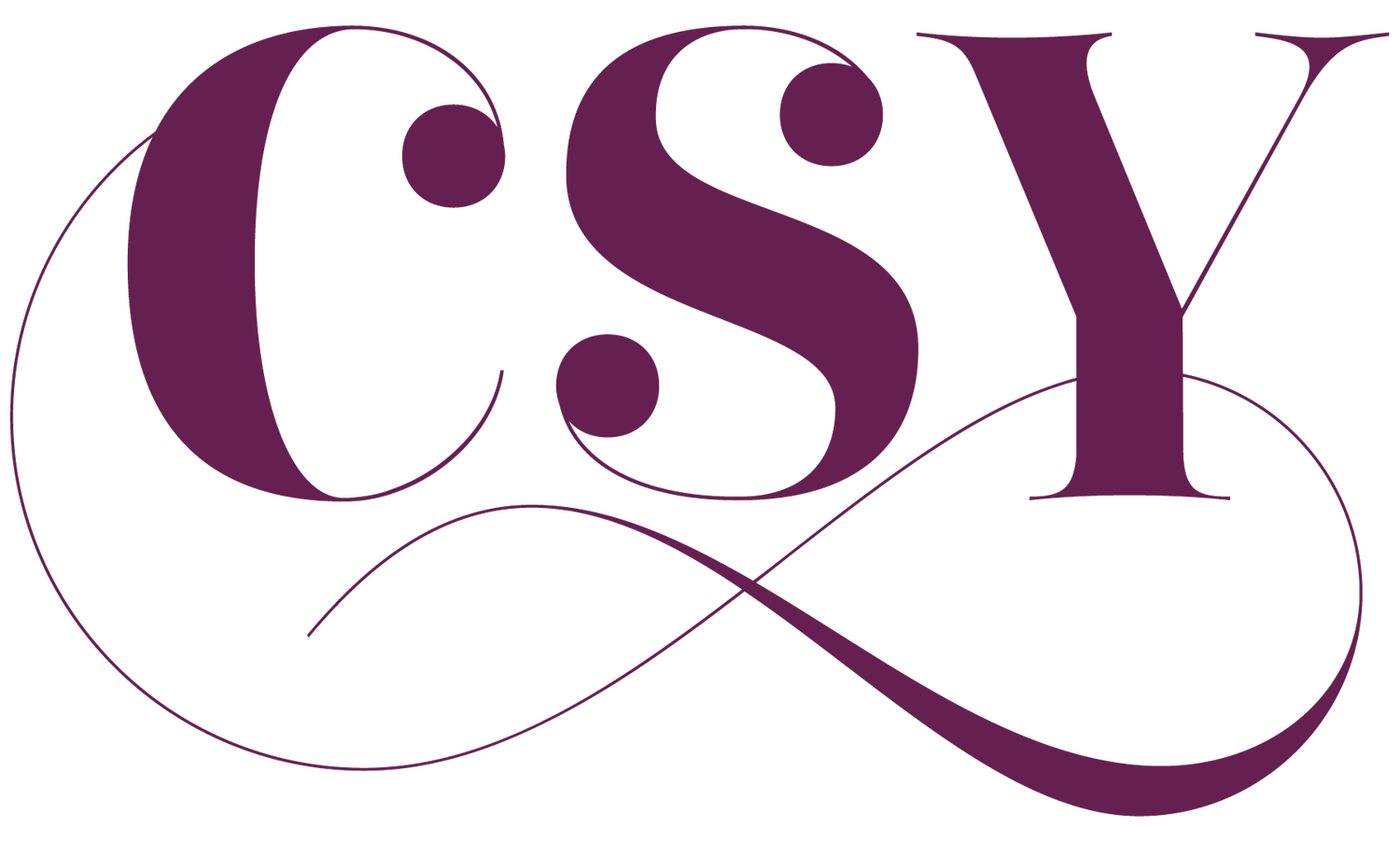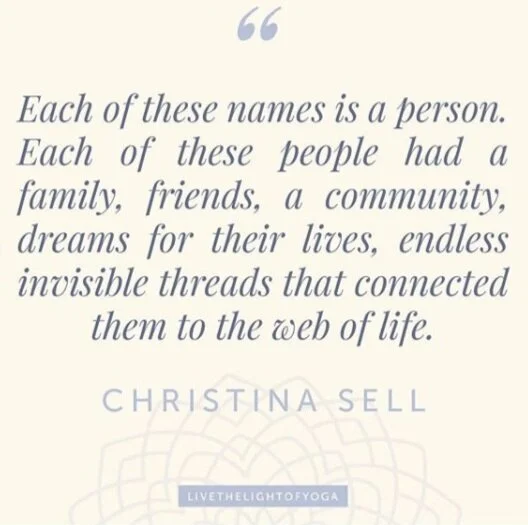Amazing Grace
When last I wrote, I invited you to Say Their Names, an evening of contemplation and prayer. Many of you attended live and several people have asked me if the recording is available. The audio from the evening is the latest episode on the Live the Light of Yoga podcast so if you want to listen in, you can.
Be warned—the evening was sober. Not in a bad way, but to be clear, this was not a typical Christina Sell pep talk. Hope Morgan offered her beautiful gift of song with a moving rendition of Amazing Grace, I said a few words, read the names of almost 200 people murdered by the police, and then closed with an invitation to prayer, and another verse from Hope.
Before we recorded the evening, Hope and I spent some time talking about the song, Amazing Grace. The song’s author, John Newton, was a white man. He was a captain on a slave ship when, one evening in the middle of a storm at sea and fearing for his life, he prayed to God, had an awakening, lived through the night, and went on to write the words to this beloved hymn. If you listen to the recording, you will also hear me talk a little about the fact that John Newton didn’t stop captaining slave ships immediately after he was saved. While he eventually became a minister, the truth is that he took some time to integrate this moment of Grace into his life.
I grew up in the Methodist church singing Amazing Grace regularly. I have always been moved by the message, even though at times, I cringed at words like “wretch” and wasn’t really sure how Grace might teach my heart to fear. Of course, my issues with the Christianity of my childhood is another entry for another day. Last week, as I listened to Hope sing these familiar words I heard them through the lens of systemic racism. Instead of feeling like “wretch” was a shame-based accusation, I saw the wretchedness of the ugly truths that live at the core of America’s institutions and therefore, my own conditioning. I felt the blessing it is to claim wretchedness—to acknowledge shame, remorse, and the degradation of spirit that comes with white supremacy.
Don’t get me wrong— this is not a blog entry about white guilt, shame, nor is this entry a finger-pointing tirade about how we all need to do better. If you don’t know that you need to do better by this point, nothing I am going to say today is likely to change your mind. This is a blog entry about Grace, healing, and the power of Love to redeem what is broken at whatever level I can own up to the wretched brokenness— personally, relationally, communally, societally, etc.
Listening to Hope sing, reading the names of so many lives stolen through violence, and in an online gathering devoid of social chit-chat, banter, or sentimentality, I glimpsed again the truth that Grace is for the wretched because the wretched need it. More importantly, the wretchedness is not the end of the story, but is, instead, the starting point of the promise and revelation that a greater field of Love is already-present, awaiting my honest, ongoing participation. I figure that the depth of pain, heartbreak, and acknowledgement of need is directly proportional to the healing power that Grace has to offer me.
And, of course, there is the work to integrate these moments of insight, awakening, and Grace into meaningful, reliable, and sustainable action over time.
All right. That is what I have for today.
by John Newton



